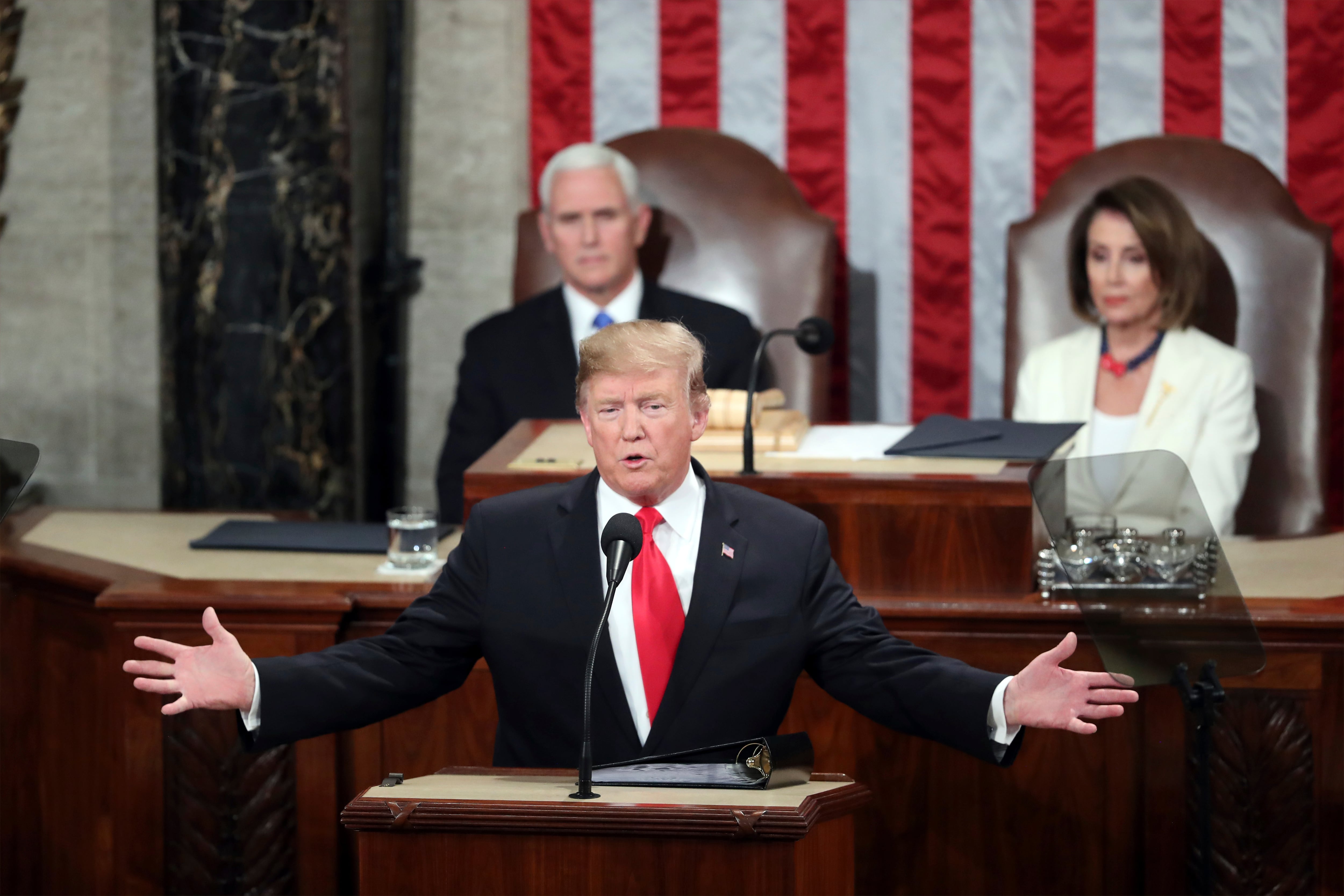WASHINGTON — President Donald Trump made the case for drawing down the number of American troops fighting overseas and boosting up those deployed along the southern U.S. border in his annual State of the Union address Tuesday night.
Among pleas for bipartisan unity on national issues and attacks on political foes for opposing his policy priorities, the commander in chief promised a national audience that troops in the Middle East and Afghanistan will be returning home soon.
“Our brave troops have now been fighting in the Middle East for almost 19 years,” he said. “In Afghanistan and Iraq, nearly 7,000 American heroes have given their lives. More than 52,000 Americans have been badly wounded. We have spent more than $7 trillion in the Middle East.
“As a candidate for president, I loudly pledged a new approach. Great nations do not fight endless wars,” he said to bipartisan applause.
RELATED
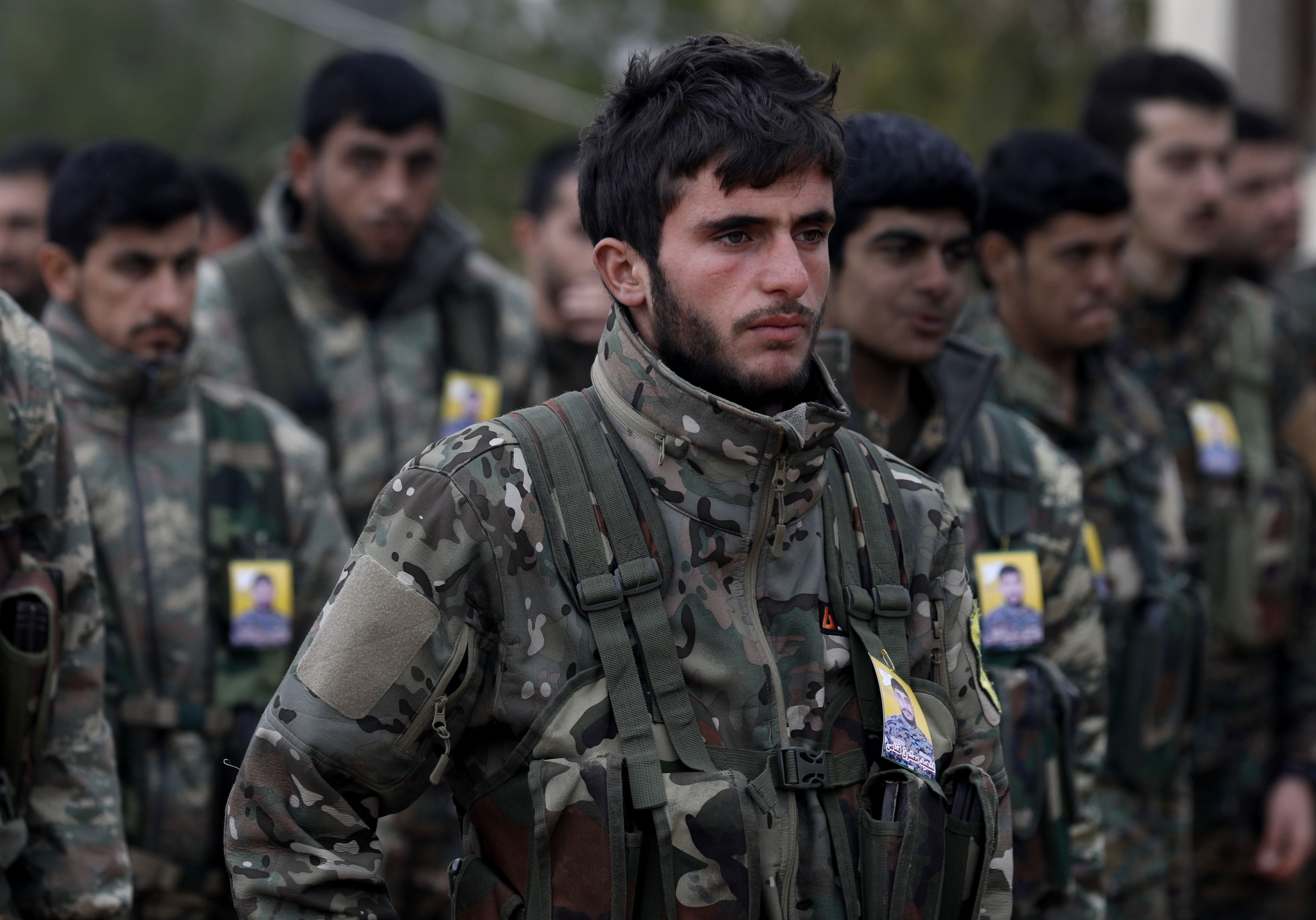
Trump, who made the nation’s economic progress a centerpiece of his speech, said that progress could be stymied by “foolish wars, politics, or ridiculous partisan investigations” — a barb for House Democrats expected to delve into his campaign's ties to Russia and other topics.
The speech came just hours after the Senate approved a Middle East policy bill that, in part, urged Trump not to precipitously withdraw troops from Syria and Afghanistan. The bill language on the two wars was authored by Senate Majority Leader Mitch McConnell, R-Ky., and passed with a broad bipartisan support, 77-23.
Earlier in the day, McConnell acknowledged the Trump administration has overseen “huge progress in the fight against Islamic State group militants,” but threats remain. Senate Minority Leader Chuck Schumer, D-N.Y., called the withdrawal from Syria without the ISIS’ defeat another of Trump’s “broken promises.”
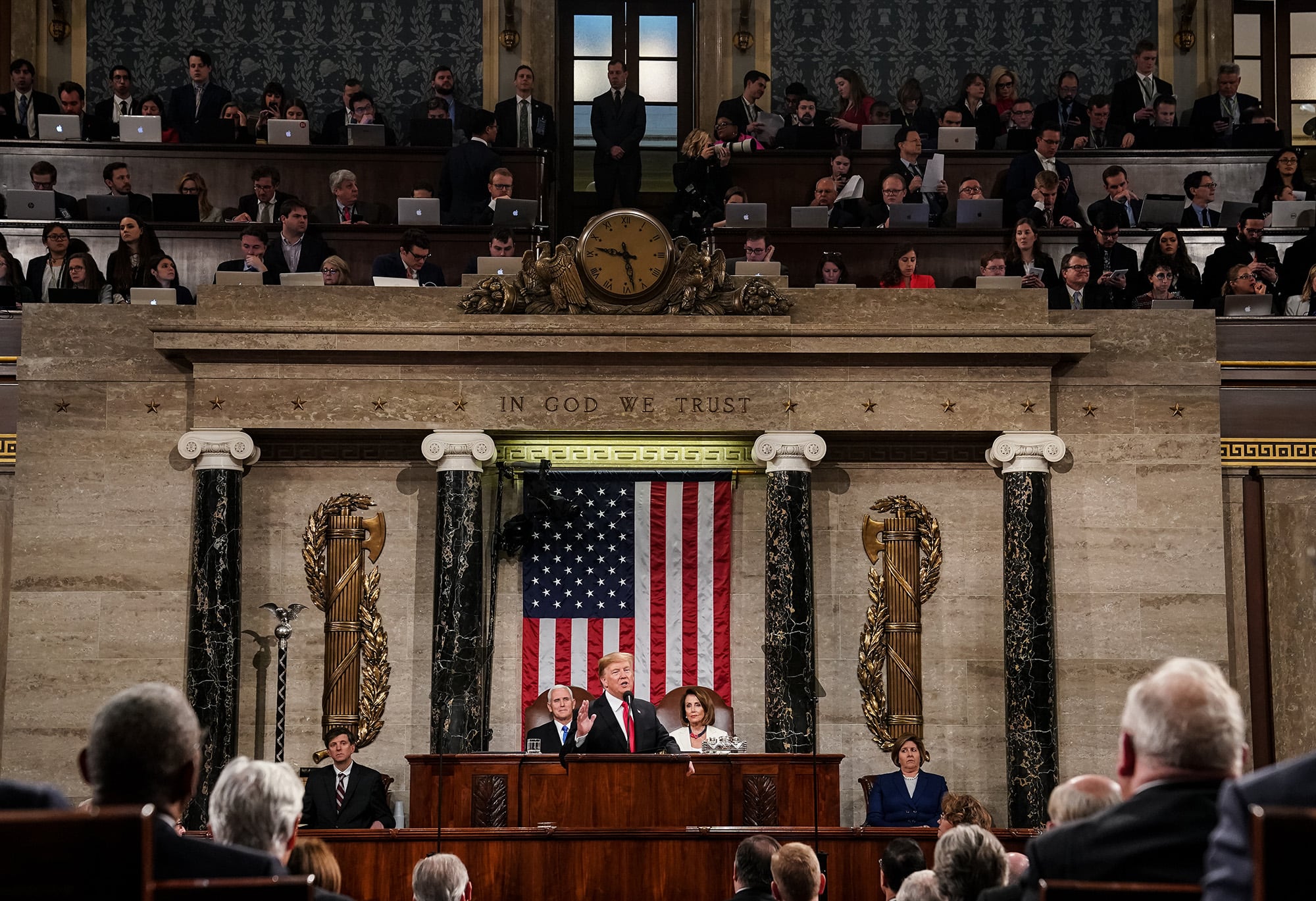
But Trump in his address insisted that coalition forces “have liberated virtually all of that territory from the grip of these bloodthirsty monsters,” echoing his recent comments declaring victory in the Syria fight.
“Now, as we work with our allies to destroy the remnants of ISIS, it is time to give our brave warriors in Syria a warm welcome home,” he said.
In Afghanistan — where U.S. officials have begun negotiations with Taliban remnants on a permanent cease fire — Trump said that “the hour has come to at least try for peace” and said he expects more troop reductions in the near future.
About 2,000 troops are currently stationed in and around Syria and another 16,000 in Afghanistan. Defense Department leaders have claimed progress in both areas over the last year, but repeatedly warned in congressional testimony that too rapid a withdrawal could lead to regional instability.
One area seeing a troop increase is the controversial southern border deployment. About 2,300 active-duty troops are currently deployed across several states in support roles with the Department of Homeland Security, providing construction, logistics and intelligence services.
Democrats in Congress have blasted that mission as militarizing the national immigration debate. But the president, who has been battling with lawmakers over more than $5 billion for his proposed border wall project, insisted in his address the military presence is needed because of the grave security threat facing America.
“As we speak, large, organized caravans are on the march to the United States … I have ordered another 3,750 troops to our southern border to prepare for the tremendous onslaught,” he said.
“This is a moral issue. The lawless state of our southern border is a threat to the safety, security, and financial well‑being of all Americans.”
RELATED
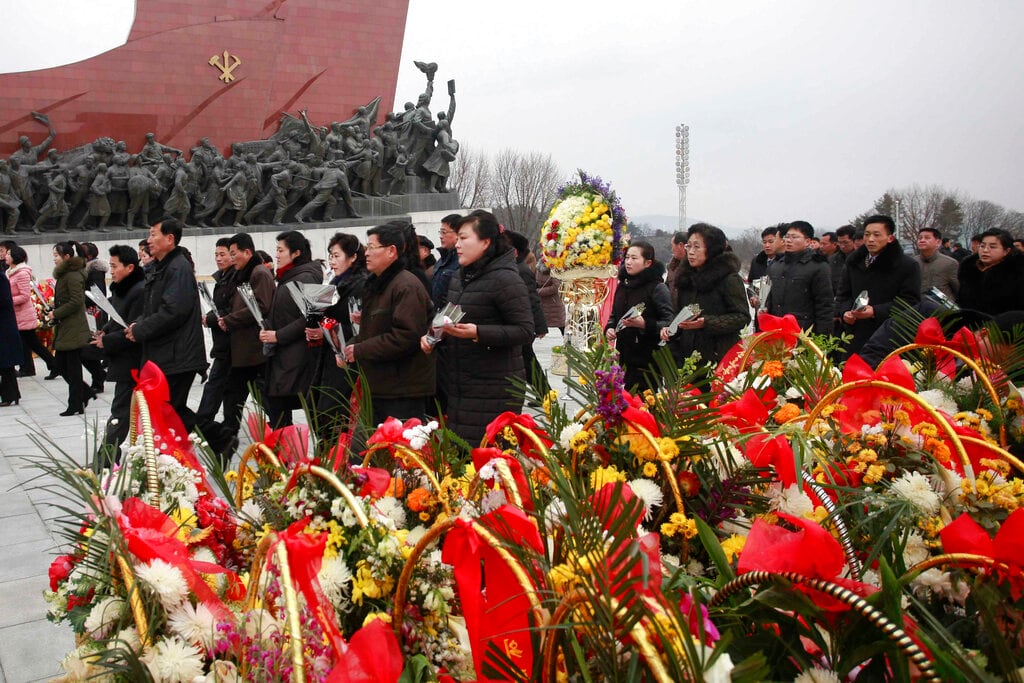
On defense spending, Trump said his administration had “begun to fully rebuild the United States military,” with $700 billion for fiscal 2018 and $716 billion for fiscal 2019. He reiterated that he has pressured foreign allies to increase their defense spending because “the United States was being treated very unfairly by NATO.”
The commander in chief made no mention of plans for a $750 billion defense budget proposal for fiscal 2020 or — with Washington mired in fiscal 2019 budget negotiations — what the path might be for a bipartisan compromise for next year.
He also claimed the recent U.S. withdrawal from the Intermediate Forces Treaty with Russia as a victory, suggesting he might negotiate a new agreement that includes China.
“Or perhaps we can't, in which case, we will outspend and out-innovate all others by far,” Trump said.
RELATED
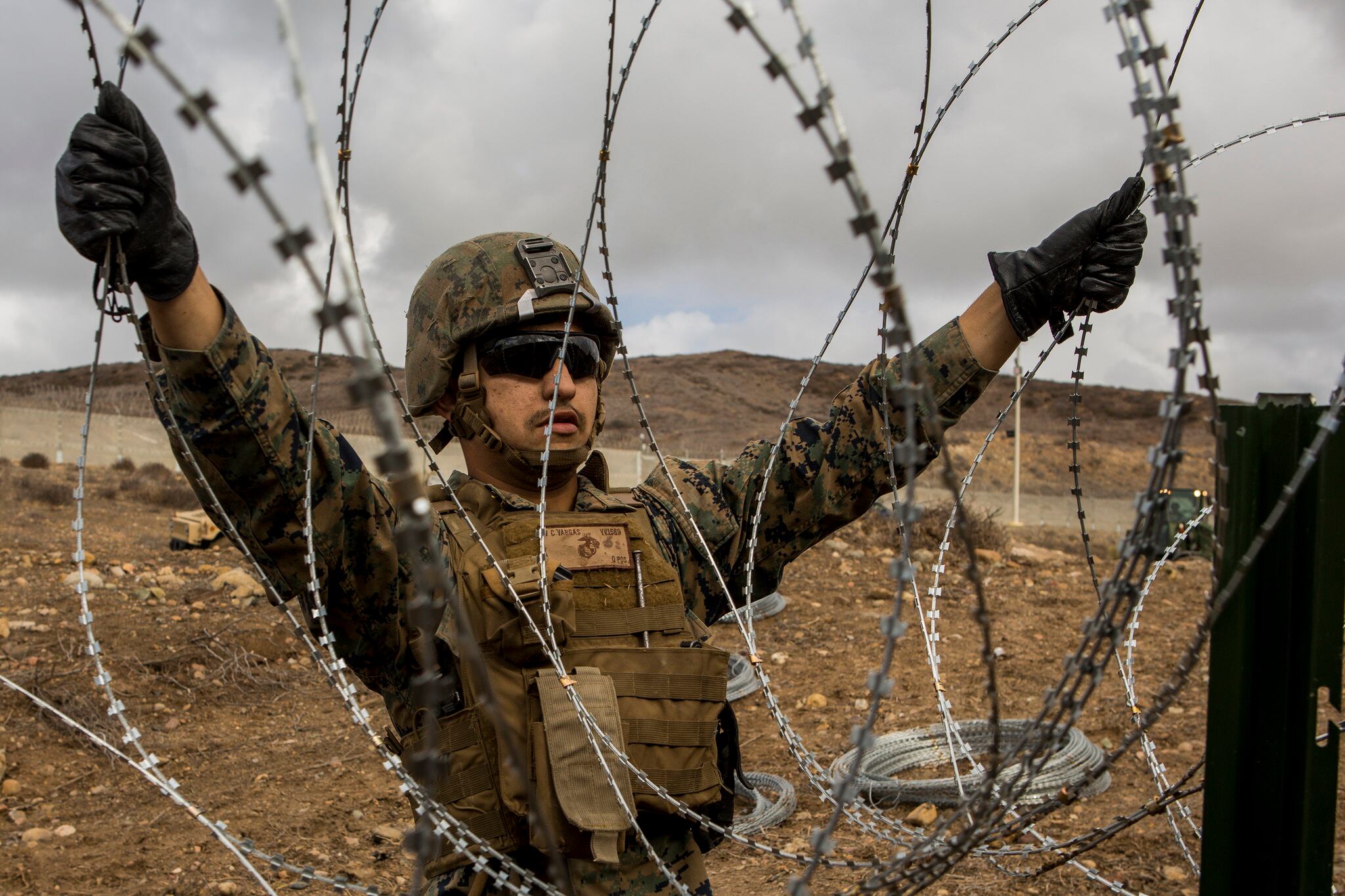
On North Korea, Trump claimed his bold bilateral peace initiative had averted war. The U.S. president plans to meet with North Korean leader Kim Jong Un again in late February.
“If I had not been elected President of the United States, we would right now, in my opinion, be in a major war with North Korea,” he said, to a smattering of applause. “Much work remains to be done, but my relationship with Kim Jong Un is a good one.”
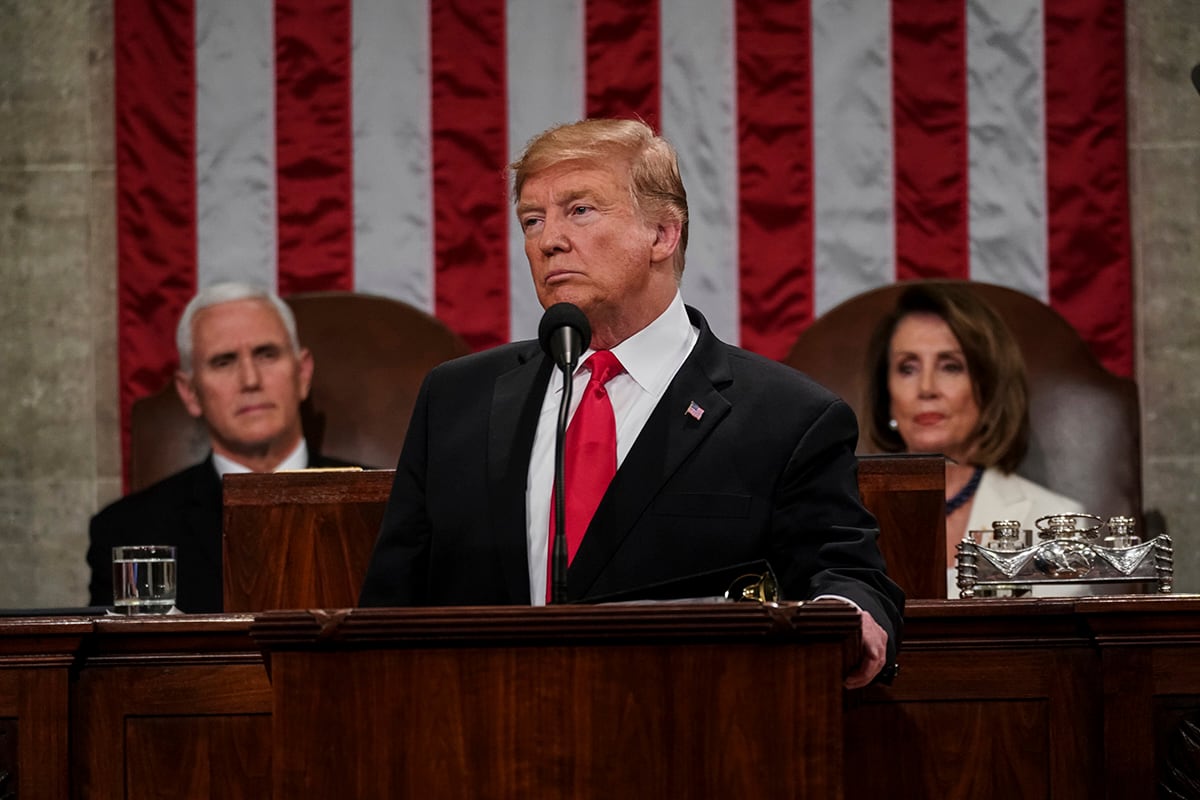
Trump made only a passing mention of veterans policy in the speech, but invoked the memory of World War II troops as a charge to lawmakers to set aside political differences for the good of the country. Three veterans from the war were among the president’s guests at the event.
“We must choose whether we will squander our inheritance or whether we will proudly declare that we are Americans,” he said. “We do the incredible. We defy the impossible. We conquer the unknown …
“No matter the trials we face, no matter the challenges to come, we must go forward together.”
That message of unity will be put to a test in coming days. Trump and Democratic lawmakers must reach a compromise on border wall funding by Feb. 15 or risk another government shutdown similar to the month-long one which stretched from late December to late January.
Leo covers Congress, Veterans Affairs and the White House for Military Times. He has covered Washington, D.C. since 2004, focusing on military personnel and veterans policies. His work has earned numerous honors, including a 2009 Polk award, a 2010 National Headliner Award, the IAVA Leadership in Journalism award and the VFW News Media award.
Joe Gould was the senior Pentagon reporter for Defense News, covering the intersection of national security policy, politics and the defense industry. He had previously served as Congress reporter.
